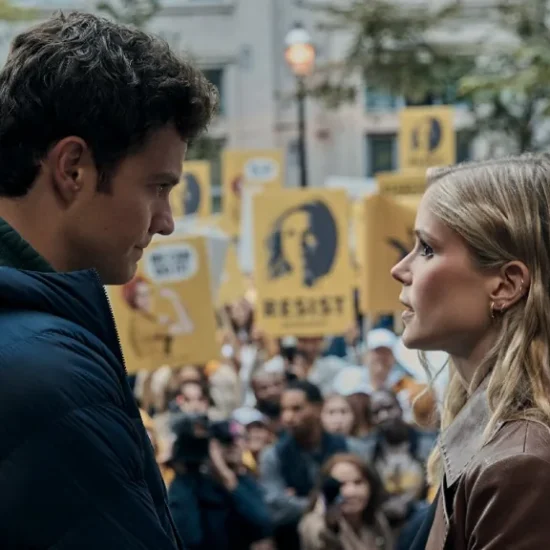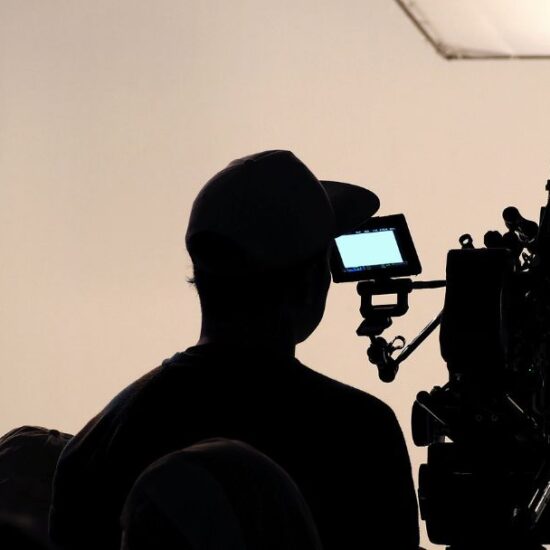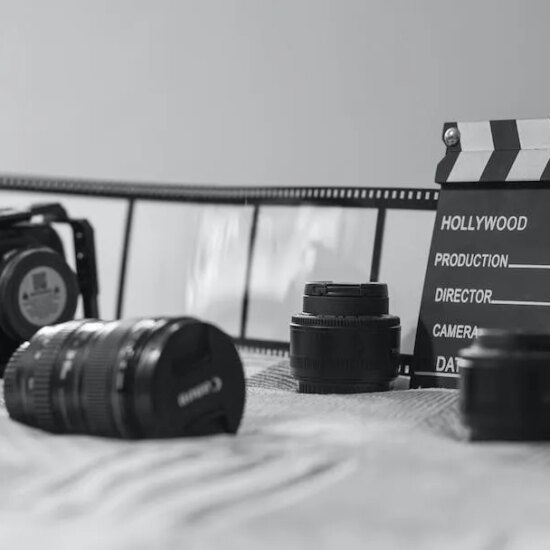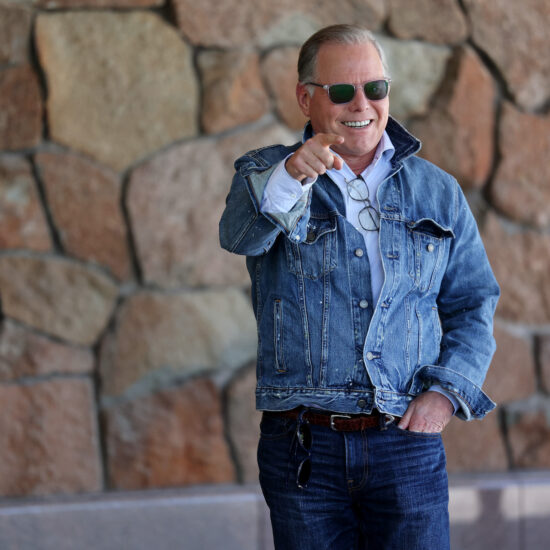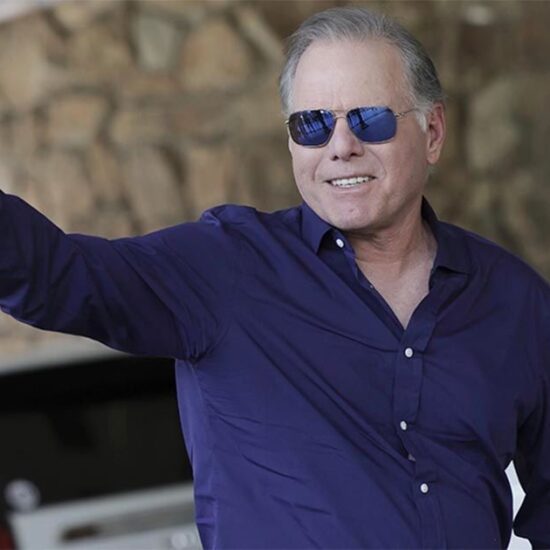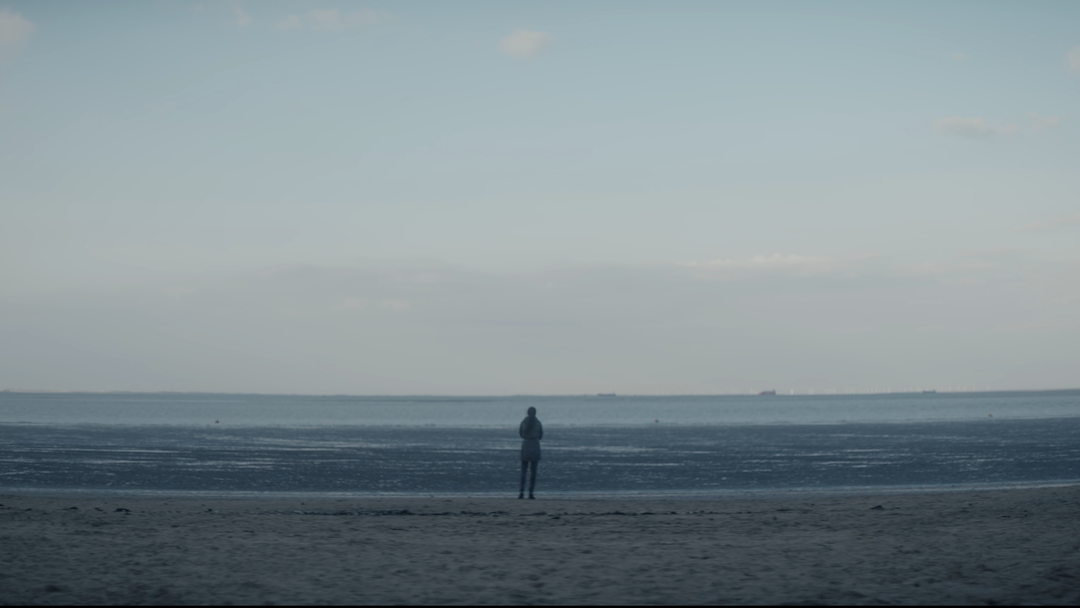
Often neglected by the oversaturated production industry in London and the south of the UK, the north has faced limitless challenges for independent filmmaking. Directors struggle to find producers, and without a producer there is no film to be made. Government support and funding are lackluster in their efforts, as they focus on the production hub that is London. Of the 170 million spent by the BFI, only 9 million is spent in the northwest. Stories and storytellers don’t just exist in the UK’s capital city, but throughout the country and up north. The future of independent film in the UK rests on the chance that production in the north is put back on track.
I was lucky to have the opportunity to speak with director Keith Farrell about his work in film and journey through the industry. Being a filmmaker up north while the production scene in London dominates the entire country, he holds a very personal and important perspective. Farrell is a Manchester based director, who’s done both documentary and narrative work. Just this year he won Best Director at Manchester International Film Festival, for his debut feature, Wait For Me. He’s previously directed docudramas for networks such as RTÉ, PBS, Channel 5, and The Smithsonian Network. Many of his short films have been screened at Oscar qualifying festivals and have won plentiful awards.
You began your directing career making documentaries; what initially drew you to that type of filmmaking? Was there one story you wanted to tell specifically or did you intentionally look for a story to tell?
My background actually began when I left school. I started working as a journalist for my local newspaper. So my background was in journalism. And it’s kind of an easy step from journalism, documentary making. And when I moved to the UK around 2000, I decided I wanted to study filmmaking. I went to Born University, and then I moved up to Manchester and got an opportunity to work with Granada Television. I was hired to work in their department of documentaries. It was a really great place to learn. There were so many fantastic documentarians there. And on my first day of the job I sat besides a BAFTA winner, two time BAFTA winner… there was an Emmy winner across the floor. It was just a kind of experience you don’t get anywhere else except in one of those kinds of places… what would have been a traditional British television company, the kind that don’t exist anymore.
So that’s kind of how I found my way into documentary making. I didn’t initially want to be a director. I was initially on a route to producing. I started my career as a researcher, then an assistant producer, then I became a producer. And then in about 2005 had an idea for a documentary, which looked at how Ireland allowed Nazi war criminals and collaborators into the country at the end of the Second World War, and at the same time refusing to allow Jewish refugees in. At that time my boss said, “look, we’d never get [that] off the ground with ITV”. We really struggled to get it in the UK, but there might be a good [chance] in Ireland. So I went over to Ireland, worked with a producer over there called Stephen Rook. We got a commission, and I decided to direct that documentary. It explored a real kind of dark part of Irish history which had not been explored before. I got the book for making docs after that, and I kind of started making docs that often were historical subjects that covered kind of difficult periods in Irish history. I also started making stuff as a doctorate director in the UK as well. So I started dividing my time between the UK and Ireland. I had a particular interest in UK Irish stories, immigrant stories, or stories that link these two islands. And that’s how it kind of came about.
From about 2015, I started doing short films, narrative shorts. My first one was called Rabbit Punch, which looked at a refugee story in Manchester, and then I grew from there. That’s how I ended up making feature films. Now, I still make docs. I’ve actually just finished a three part series about the Irish Civil War for Irish TV.
Was your initial background in journalism something easy to translate to filmmaking? Did it help with the research part of documentary making?
Yeah, the skills were transferable. I had a really good grounding in research from my work as a journalist. I was pretty good at kind of digging and finding stories I needed to find. I was pretty good on the phone, speaking to people and kind of working my way around bureaucracy. You do a lot of that as a journalist, even if it’s just local reporting, ringing councils and finding information. So that kind of felt natural fitting with where I came from as a documentary maker.
You’ve done both documentaries and narratives. What’s the biggest difference for you as a director between a documentary and a narrative? Do you think there’s a big difference in how you go about it or do you kind of have the same mindset?
There is a huge difference in some respects, and in some ways there’s not. You’re still telling stories with pictures, let’s be honest. Whether it’s a drama or documentary, you’re still telling a story visually. It’s a visual storytelling medium. But I think the key thing you have when you start a drama is you have a script, which is really great. You know the story’s beginning, middle, and end. In a documentary, you don’t necessarily know that at the start.
You also have a much bigger team around you when you’re making a [narrative] film. While with documentary making, you’re a much smaller team and you’re kind of a little bit more on your own. And it’s easier to fall. You can fall farther and harder in documentary making. If you make a mistake in a drama, you have a support network around you. So that was the first thing getting used to. I’m very independent from documentaries, so getting used to it for me, I found it quite hard to get used to letting other people do their roles.
Your most recent film, Wait for Me; Why was it a story you wanted to direct? What drew you to it?

As an Irish emigrant to Britain, I’m interested and fascinated by Irish emigrant stories. Not all of them are success stories. We love in Ireland to trumpet the success stories, the person who goes with two pennies in his pocket and builds up a business empire, whether that’s in the United States or the UK. They have pretty ordinary lives, they work, they have kids, and they settle in. They become good immigrants. But there’s those who get left behind. The case of our central protagonist, what I really liked about her when I read it was, as a journalist, I’ve met those people.
When I first moved over here I still was working as a journalist, did a bit of writing for the Irish Post, and I met people like Alison who have been left behind, haven’t been successful, haven’t even had the moderate immigrant story of settling down, having a good job and having a reasonable life. There are actually a lot of emigrants who end up falling into that trap, and it can happen for many different circumstances, dragged into criminality. And so I think that’s what attracted me to the story as well. Bernard’s writing was really impressive as well. I like the idea of two kinds of outsiders coming together, find each other, but it’d be a platonic relationship, not a love story as such. Two different kinds of people who have by chance found each other and go on this road together. And then for Alison, it’s a redemption story. She fixes her past. One of the things that’s in the film is that they had to leave Belfast really quickly because of something her father had done. And they’d been driven out by paramilitaries, which is quite a common story. It was quite a common story in the early 2000s, and still goes on today.
Paramilitaries are still excluding people from Northern Ireland and they literally have to jump on a bus with minutes to go and find themselves in the city and they’ve no idea where they are, so it’s easy to fall into that life of crime. I don’t think people realize it. It’s easy to fall into poverty and criminality and go about your current life in a way you don’t expect. So that’s what appealed to me because I knew the stories, I knew these people. And in a weird way it seems like there’s a lot going on, but actually there’s so much more that could have been told. I think sometimes you can get criticized for being too dark, and maybe we were a little bit too dark, but this is the reality.
How involved were you in the casting process? I feel like it was very well cast. What was the main thing you looked for? They all felt like very real people.
With the exception of Neil Bell, who plays Max [we really struggled to cast Max], we did auditions for everyone. And we chose our cast based on the best addition, we did blind additions. So none of the characters had any distinctions, we didn’t say what race they were or where they’re from. The only thing we did insist on was that you had to be able to do a northern accent, because it was set in North England, and for the Irish role you had to be able to do an Irish accent. Those were the two key only things we insisted upon. So, for example, Theo isn’t a native Yorkshire man, even though his accent comes across. He’s from Croydon. But he just blew us away when he read for Barry. He was really good.
And Elva Trill, I’d worked with Elva before on two shorts, so I knew her really well. And she’d actually originally read for the Allison part, but I didn’t feel she was right for Alison. We chatted and I thought she’d be a great Karen, which she was. And then, obviously, Karen Asan as Alison, is just outstanding. She just ties the whole film together.
And then randomly, Max. We just really struggled to cast a Max. And then I saw Neil Bell in a short. He wasn’t playing a bad guy, he was playing this guy racked by grief, but there was just something about his performance in that short that I just went, oh, my God, he’d be brilliant. Because he [Neil] normally plays that kind of lost soul type character, or a gruff type character, but not necessarily evil or bad. So it was quite a bit of a departure from him. But he was brilliant in the role. I mean, he was really good. His sense of menace on screen is incredible. So, yeah, so that’s where that came from.
With regards to filmmaking in the north of the UK, what were the challenges you faced while filming?
I mean, the biggest challenge was access to support, both in terms of finance and practical support. We were very lucky that we got an investor to invest in the film. But we really struggled to initially get a sales agent to give us figures to help us raise finance, and we really struggled to get any support from London based operations. We did get support from screen Yorkshire, I just want to stress that we got support from Screen Yorkshire! And without that, I mean, both financially and in a practical manner, screen Yorkshire was just invaluable. If something in your case falls through or you’re struggling, they’re brilliant. But they also provided all our trainees, they came from Screen Yorkshire, so they paid [the trainees] fees. Without them, we couldn’t have made the film. But outside of the north, we had no support whatsoever. And we are very much kind of left to our own devices. As a filmmaker in the north of England, you have no support whatsoever. 70% of all production companies are based in London, so obviously there’s a natural focus there. But since 2010, there has been a failure to try and support emerging production companies and producers in the northwest. And so it was really hard for me to find a producer to begin with. I was very lucky. I found Theo Burrows, who was an advertising producer, who had won Cannes Lion, who was looking to produce a feature film. And then I found Margaret Douglas, who was an award winning producer of short films, who was looking to make a feature film.
Before 2010, there was Northwest Vision, and there were regional screen agencies that supported filmmakers, and they were gotten rid of by the coalition government. And there’s been no replacement. And all the funding was handed to the BFI. And the BFI, don’t get me wrong, they’re a cultural organization, they do an amazing job preserving and protecting British film, but they’re not an economic organization. And where Screen Yorkshire stands out, as opposed to say the BFI is, screen Yorkshire is an economic organization. Its job is to support the economy of filmmaking and filmmakers. So I’ve been very lucky.

In the last few years, I’ve managed to work in Northern Ireland and I’ve managed to work in the Republic of Ireland, and I’ve worked with their screen agencies, Northern Ireland Screen and Screen Ireland, which are both economic bodies. And I’ve realized that what we’re lacking in the north of England is a body, a champion that can help not so much emerging directors, even though I am a director, but producers. Really the hardest part for any director is finding a producer, because there’s no support in the north of England. So we are one of only two films to be released this year from the northwest of England. To the best of my knowledge, it’s ourselves and a film called Poland Shoes, which was produced out of Liverpool. Now, that’s a shocking indictment of the British film industry. That only two films in northwest England. And to put that in context, the northwest of England is the third largest population in the United Kingdom. So the fact that only two feature films have come out of the third largest population area compared to Northern Ireland Screen, with a population of 1.5 million, who produced, I think, 5,000,000 films in the last 18 months. So you could see the difference, why I think we need a screen agency for the north.
And the other problem is, it’s a telling indictment that 70% of all film production companies are in the south of England. There is this lack of support, there are no new companies emerging. I can’t think of a major production company that has emerged out of the north, out of Manchester since 2010, without either A, getting funding from a major broadcaster, like ITV, or B, having to set up a London office to survive.So it’s really hard to set up for production companies. And without producers, we don’t have directors who create films. And without my producers, I couldn’t have made this film. And I think that’s my calling card as a director, that sounds strange, but we’re not given any support by production companies, we’re not giving any supporting producers. Either they’ll end up having to move to London to work, or they’ll have to leave the film industry and television industry completely, or take jobs that are below their pay and skill set, to survive. And I think that’s the biggest challenge of making films in the north of England. We lack a network of support and system of support because we don’t have the right economic bodies in place to allow filmmakers to move from short films. And there’s lots of support from the BFI for short filmmakers in the north, but not feature films.
So you make your short films as a producer in the northwest, then you either have to go into advertising or go into television. We’re losing film. Filmmaking is fantastic. There’s nothing like sitting in a cinema with, you know, fifty to sixty people and watching a film together. It’s one of the last great collective experiences, you know what I mean? In the dark, and everyone just transfixed on the screen. It shouldn’t always be Hollywood blockbusters. We should be supporting our own filmmakers. And the best way to do that is support the whole of the UK.
What’s special to you about independent filmmaking to you, specifically in the north of England?
I was at a cinema called The Rex and Ellen. It’s a beautiful 120 year old cinema, and the man who owns it owns about five or six of these small independent cinemas. And he has a passion for independent cinema. And what he said to me is, we don’t get films that suit our audience. We do not get films that our audience wants to see or relate to. And that’s what we lose by not supporting northern film. That’s what I love about the filmmaking in the north, is that you have an opportunity as an independent filmmaker to tell stories on the big screen that don’t normally get told.
What’s your favorite part about filmmaking? What makes you think, this is why I am happy with what I do?
I love controlling the chaos, I’ll be honest with you. Filmmaking is a chaotic process, and things go wrong all the time. Weather changes, especially in the north of England. This may be constant with documentary making, but I’m really good at handling things and working. Just making it work. And then to add to that, I love being on set. I just love working with actors and making scenes work with actors and kind of getting the actors to have their voice, but also making sure that their voice matches the script of the story as it has to be told. And that’s what I love. And when you work with great actors, it’s a pleasure, but it’s also a pleasure working with new and emerging actors like Izzy Dawson, who played Ruby. It’s great working with them and nurturing them through that process.
That’s one of the skills I have as a director. I was able to do that and really enjoy it. And then when things go wrong, being able to cope with that, I mean, you’ve got to be decisive. The key thing about being a director is you’ve got to be in control, decisive, even if things go wrong. And I love that, actually. I love being able to handle that pressure and then get the best performances out.
Kaleen Gendreau is an intern at Raindance, and she previously earned her BA in Mass Communications and Production from the University of South Florida, Tampa, in the spring of 2023. She’s written and directed two student film projects, and spent a lot of her time at university working and filming in a virtual production studio.










